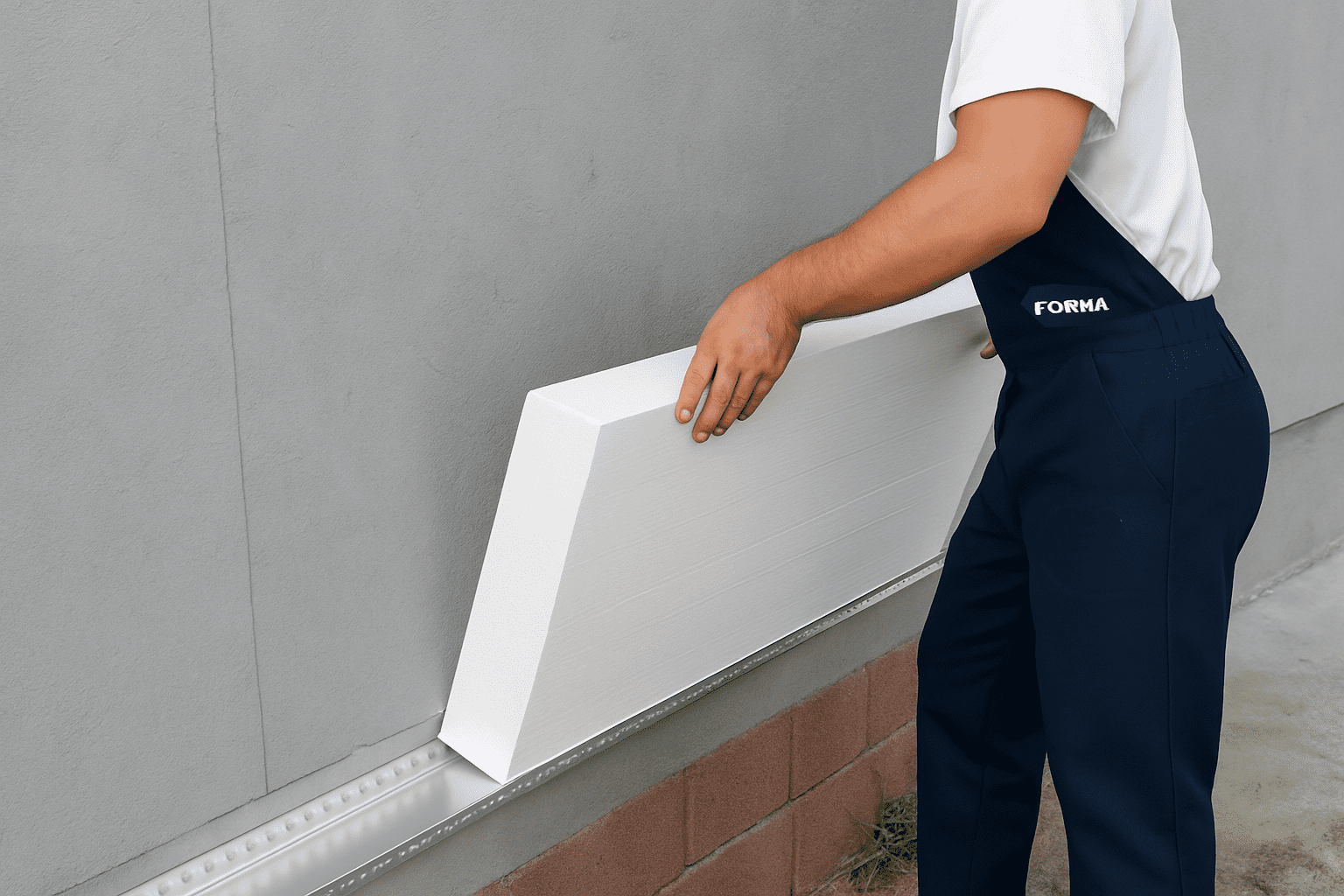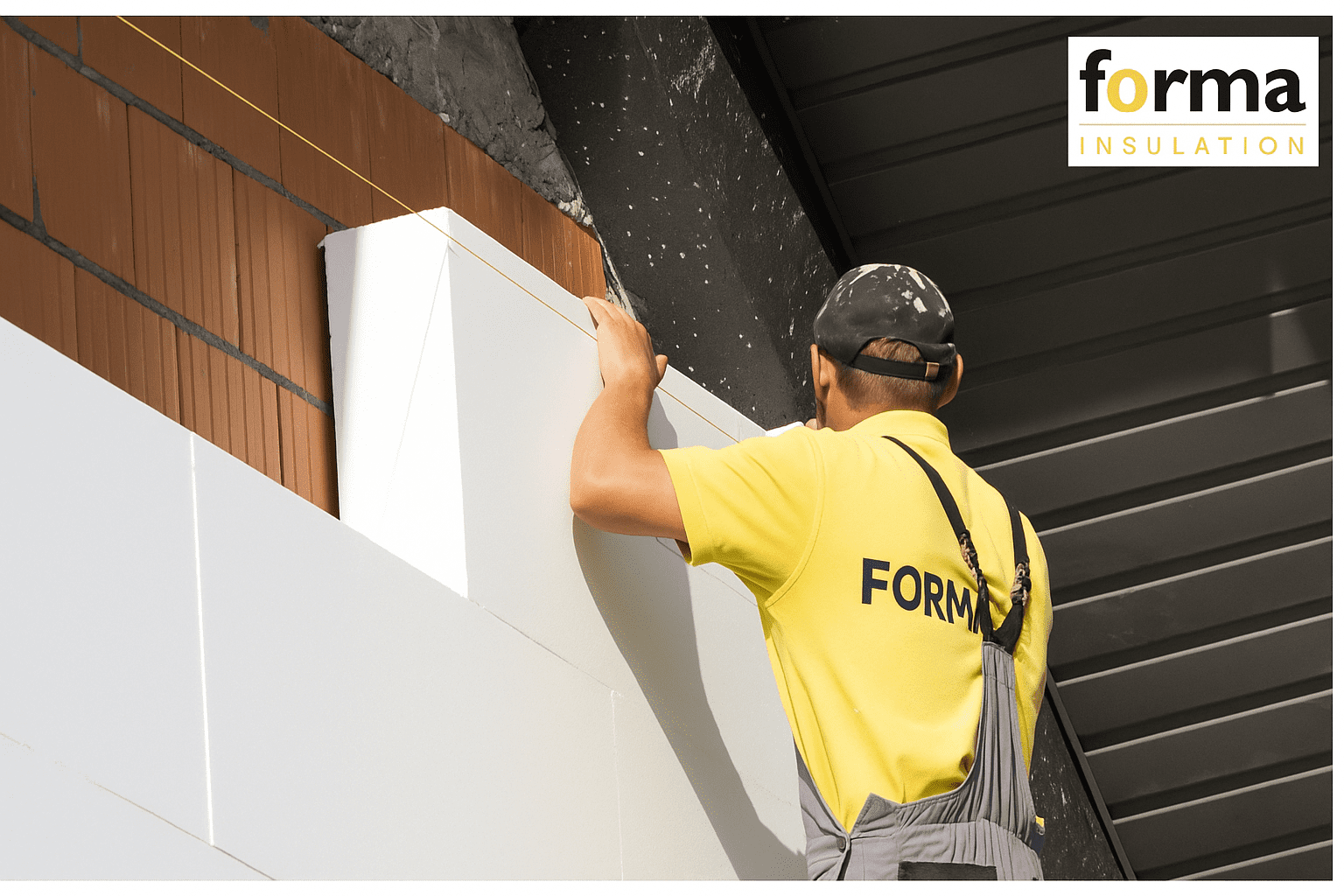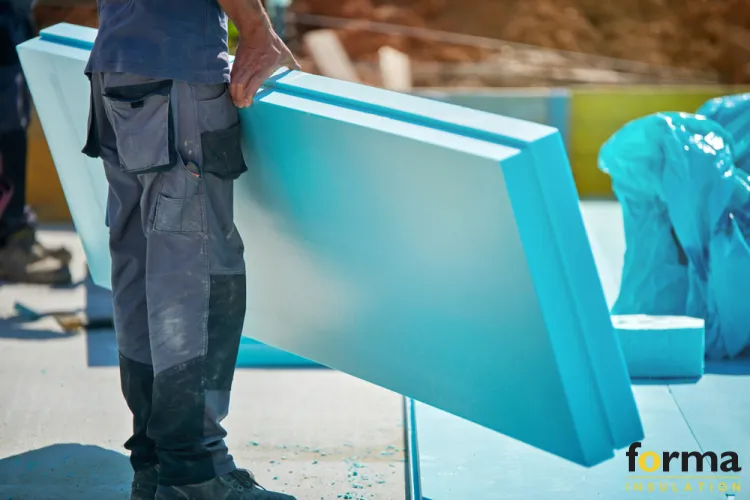Introduction
Expanded Polystyrene (EPS) has become a game-changer in modern construction, particularly in regions like Saudi Arabia, where energy efficiency and sustainability are key priorities. This lightweight, durable, and highly versatile material offers unmatched thermal insulation and structural advantages for residential, commercial, and industrial projects. In this blog, we’ll explore the uses of EPS in construction, its benefits, and why it is an ideal choice for the Saudi Arabian market.
Table of Contents
What Is EPS and Why Is It Important in Construction?
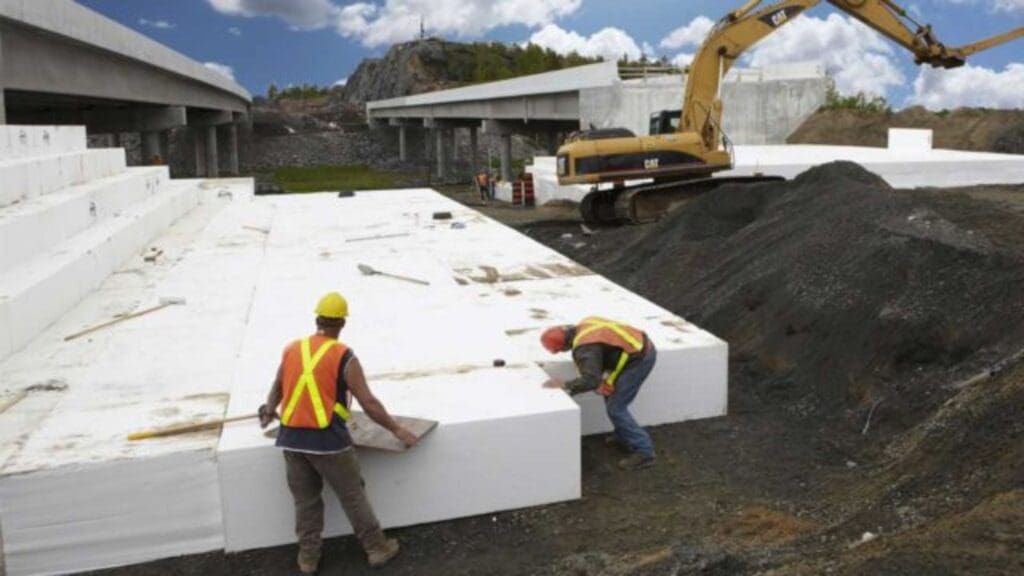
Expanded Polystyrene (EPS) is a lightweight, rigid foam material made from polystyrene beads. Known for its excellent thermal insulation properties, EPS is widely used in construction for applications like wall panels, insulation boards, and roofing.
Key Characteristics of EPS
- Lightweight: Easy to transport and install.
- Durable: Resistant to moisture, pests, and decay.
- Energy Efficient: Reduces heat transfer, making buildings more energy-efficient.
Why EPS Is Vital for Saudi Arabia
With its ability to combat the intense heat of Saudi Arabia’s climate, EPS helps lower cooling costs and supports the country’s move toward sustainable construction practices under Vision 2030.
Benefits of EPS in Construction in Saudi Arabia
- Exceptional Thermal Insulation
EPS minimizes heat transfer, maintaining comfortable indoor temperatures and significantly reducing energy consumption for air conditioning. - Cost-Effective Solution
Affordable production and long-term energy savings make EPS a cost-efficient choice for large and small-scale projects. - Lightweight and Easy to Use
Its low weight simplifies transportation and installation, cutting down on labor and logistics costs. - Eco-Friendly and Sustainable
EPS is recyclable, aligning with Saudi Arabia’s increasing focus on environmental sustainability. - Moisture Resistance
Ideal for humid environments, EPS prevents water absorption, ensuring structural longevity.
Applications of EPS in Construction Projects
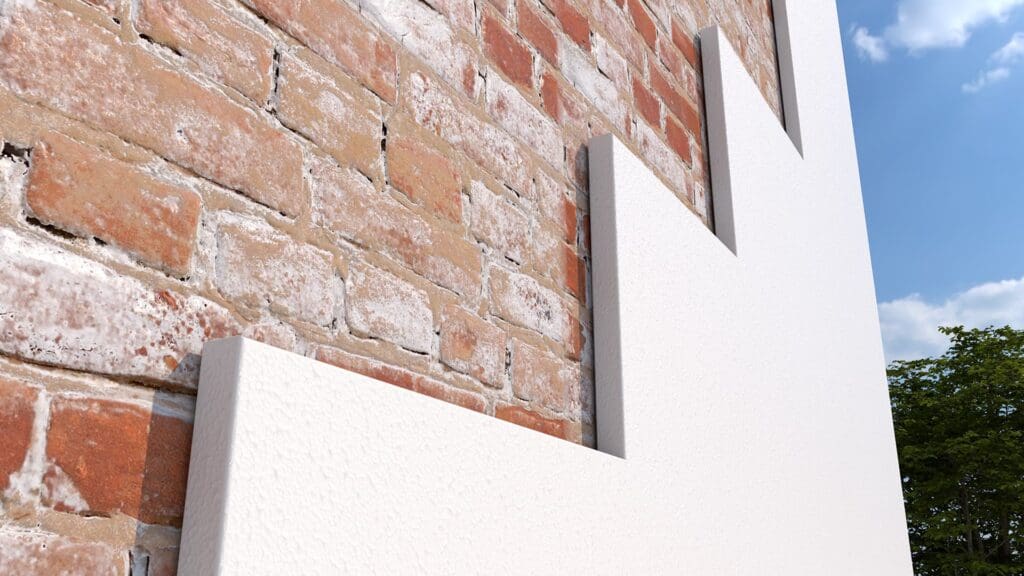
EPS is a versatile material used across various construction applications.
1. Wall Insulation
EPS panels are installed within walls to improve thermal performance and reduce energy consumption.
2. Roofing Systems
EPS blocks or sheets provide excellent insulation for roofs, protecting buildings from the intense Saudi sun.
3. Floor Insulation
EPS is used as an underlay for floors, offering insulation and noise reduction benefits.
4. Structural Elements
EPS is used in lightweight concrete blocks, formwork, and prefabricated panels, offering strength and thermal efficiency.
5. Road and Infrastructure Projects
Engineers use EPS as a lightweight fill material in road construction and embankments to reduce soil settlement and improve stability.
Key Considerations When Choosing EPS in Construction
- Thermal Resistance (R-Value)
Select EPS products with a high R-value for superior insulation. - Density
Higher-density EPS offers better load-bearing capabilities, suitable for structural applications. - Moisture Resistance
Look for EPS with water-resistant coatings to enhance durability in humid environments. - Compliance with Standards
Ensure the product meets local building codes and environmental regulations in Saudi Arabia. - Project Requirements
Consider factors such as intended use, budget, and energy efficiency goals to select the right EPS solution.
Conclusion
Expanded Polystyrene (EPS) is a highly efficient and versatile material that meets the growing demand for energy-efficient, sustainable construction solutions in Saudi Arabia. Its thermal insulation properties, lightweight design, and cost-effectiveness make it a top choice for modern building projects.
Ready to transform your construction projects with EPS? Explore our range of EPS products or contact our experts today to find the best solution for your needs.
FAQ
Why is EPS preferred for insulation in Saudi Arabia?
EPS provides exceptional thermal resistance, crucial for combating Saudi Arabia’s extreme heat. Its ability to reduce heat transfer helps maintain comfortable indoor temperatures and significantly cuts cooling costs, making it a preferred choice for energy-efficient construction.
What are EPS blocks commonly used for in construction?
EPS blocks are widely utilized in insulation for walls, roofing, and floors. They are also used in hollow block slabs, prefabricated panels, and lightweight formwork, offering durability and efficiency in residential, commercial, and industrial projects.
Is EPS suitable for humid climates like Saudi Arabia?
Yes, EPS is highly resistant to moisture and humidity, making it ideal for the Gulf’s climate. This property ensures durability and prevents structural damage caused by water absorption.
How does EPS contribute to sustainable construction?
EPS is recyclable and energy-efficient. Its use reduces construction waste and promotes lower energy consumption, supporting Saudi Vision 2030’s emphasis on sustainabilit.
